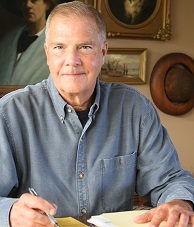 Oftentimes ambulatory surgery center physicians own not only their center, but its real estate as well. Jonathan Vick, founder and president of ASCs Inc., answers questions on successfully selling ASC real estate and obtaining favorable leases for the buildings.
Oftentimes ambulatory surgery center physicians own not only their center, but its real estate as well. Jonathan Vick, founder and president of ASCs Inc., answers questions on successfully selling ASC real estate and obtaining favorable leases for the buildings. Question: When does it make sense for ASC physicians to consider a lease back transaction for their center?
Jonathan Vick: It makes sense when the physicians own the ASC/MOB real estate and want to realize a profit from the sale of the real estate. If the physicians own the ASC/MOB real estate, they have probably greatly increased the value of the real estate by operating a successful center on the premises. This is true because the value of the real estate is based on the rent and the rent for successful centers can be at the maximum fair market value, thus greatly increasing the value of the real estate. However, this value is locked up in the real estate and the only way to unlock the profit is to sell the real estate.
There is an excellent market for ASC/MOB real estate and buyers are paying top dollar as there is a scarcity of good properties. The physician-owners can sell the ASC real estate, realize a significant profit, and lease back the ASC at the same rent. The physicians have cash so they can diversify their investments while the value of the ASC and its distributions are not affected.
Q: Are REITs and private equity firms the primary ASC buyers interested in lease back transactions?
JV: While REITs are a primary buyer of large ASC real estate deals, private equity firms are not typically interested in real estate investments. However, there are a significant number of well-capitalized specialty real estate investment firms that are seeking investments in ASC/MOB real estate. This is because ASC real estate is an attractive investment as ASCs are stable and highly profitable businesses with long time horizons and a willingness to sign long leases that are attractive to the buyers. There are also individual investors who are seeking tax-deferred 1031 exchanges. The physician-owners of ASC real estate can also transact a tax-deferred 1031 exchange so they do not have to pay capital gains taxes on the ASC sales transaction.
Q: What kinds of lease terms are attractive for both ASC physicians and potential buyers?
JV: In most cases, the sellers want to get the highest price and the buyers want long term income and security. The two parties achieve their goals by establishing terms in the lease agreement that allow each party to get what they want. The physician-owners get the highest price by agreeing to a long-term lease (10 years to 15 years), triple net lease with annual 2 percent to 3 percent rent increases. The buyers get their long term income and the security they are seeking by having the surgery center guarantee a long-term lease.
Q: How can ASC physicians ensure they are maximizing the value of their center's real estate?
JV: The value of the real estate will be maximized by increasing the rent up to fair market value and by agreeing to a long-term lease that is guaranteed by the surgery center. For each region of the country there are documented fair market rents for surgery centers.
Q: Are there any situations that could potentially lead to unfavorable lease terms? How can ASC physicians avoid this?
JV: The lease terms should be reviewed by an attorney and/or a CPA to determine if the terms are fair market and if they are fair for the physician-owners.
Q: What are the benefits of a lease back transaction?
JV: The benefits are that the physician-owners can sell their real estate, unlock the profits and diversify their investments while retaining the use, ownership and distributions from the surgery center. The rent they pay, which may be unchanged from before the sale, remains an expense to the business, just as before. The physician-owners have gained from the sale of the real estate and retained all the benefits of the ASC business ownership. Prices for ASC real estate are the highest we have seen in a decade as there is a shortage of good quality properties. Competition to buy pushes the prices up, and the current low interest rate environment enables the buyers to offer higher prices. We are currently in a "sellers market" for ASC/MOB properties. Who knows how long this will last.
Jonathan C. Vick, the founder and President of ASCs Inc., has assisted in development, merger, and strategic acquisition transactions for over 250 physician-owned ambulatory surgery (ASCs), endoscopy centers (ECs) and surgical hospitals since 1984. He has extensive experience in ASC and EC sales, real estate sales, valuations, and ASC strategic mergers & acquisitions. He can be reached at 760-751-0250 or at e-mail: jonvick2@ascs-inc.com. More information can be obtained at the website http://www.ascs-inc.com/.
More Articles on Transactions and Valuation Issues:
ASCs vs. HOPDs: 4 Unexpected Consequences of Rate Equalization
4 Recent ASC Acquisitions, Mergers & Conversions
CON Drama: The Battle Over South Carolina's Program Continues


